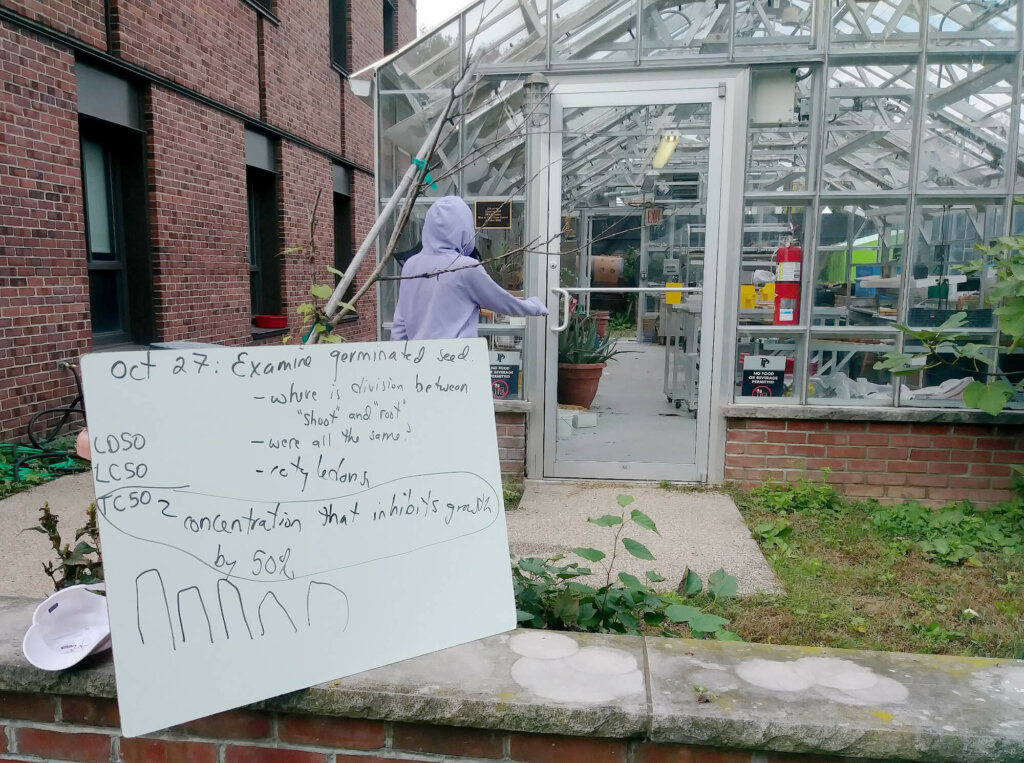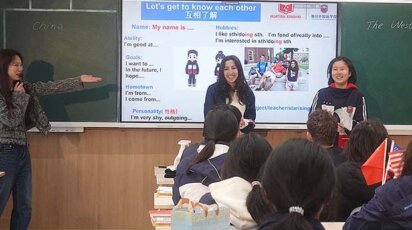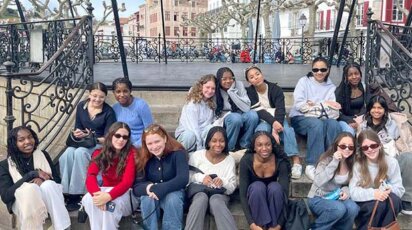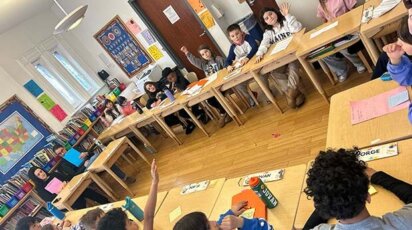News
Heard on Campus: Urban Food Systems
It has been challenging to conduct science labs outside, especially when trying to take accurate measurements on a cold or windy day. “It is constant improvisation,” said Upper School science teacher Debbie Van Ryn. “This is a great group of students to work with and they have been helpful in setting up the lab area,” she said of students in the elective Urban Food Systems.
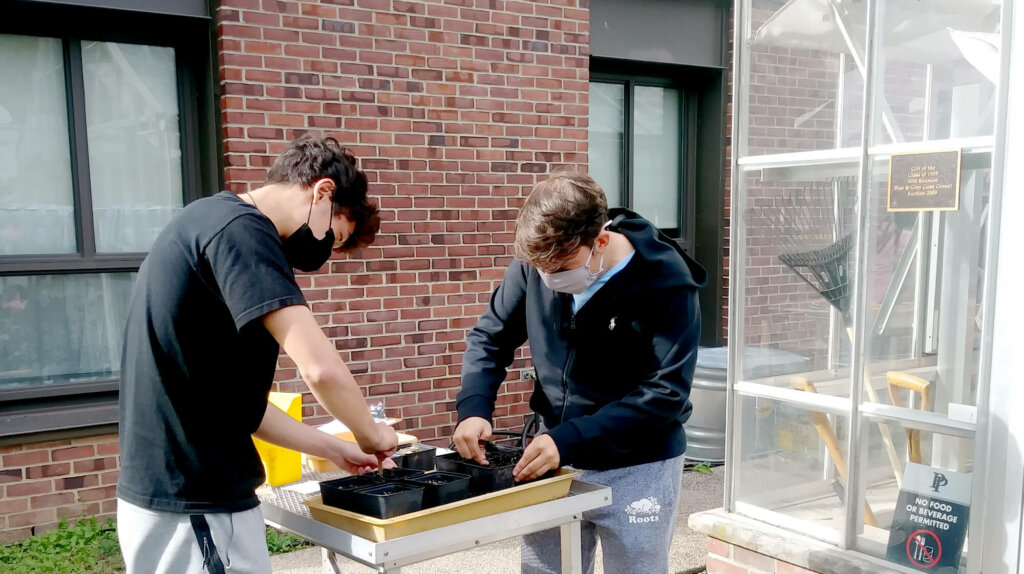
Debbie Van Ryn
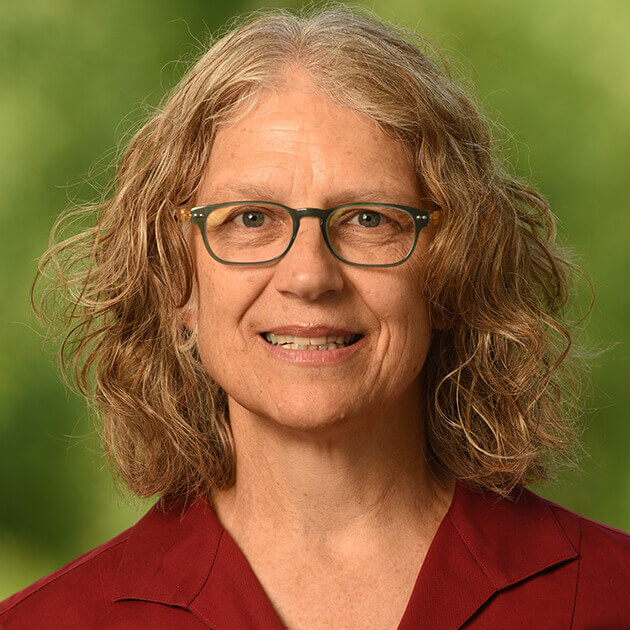
Van Ryn explained the focus of their Soil Lab: “The students in Urban Food Systems have been investigating soil and sprouting seeds on tables outside the greenhouse. Although pandemic labs mean students cannot share materials, nor work closely together with a partner, nor have access to the equipment of indoor spaces, they have been able to at least have direct experience with growing plants and with the types of tests scientists do to understand soil better. Students have evaluated soil samples for nutrient content, water holding capacity, and ability to grow plants; they have done a bioassay to test the effects of salty water on plant growth, such as occurs in some irrigated areas; have set up a compost bin, and are currently investigating how different soil amendments may affect plant growth. While we have been unable to do large controlled experiments, these concrete experiences enable students to better understand readings and data sets that we look at on virtual days.”
“We work outside the greenhouse to be socially distanced,” said Van Ryn. “So, I pull the gardening tables out of the greenhouse and spread them out on the sidewalk. The first activity was just to look at different soils and compare them in terms of composition, water holding capacity, and nutrient content. We did a bioassay to determine the effect of different concentrations of salt water on seed germination and initial growth of the embryo.”
Zack Seto ’21
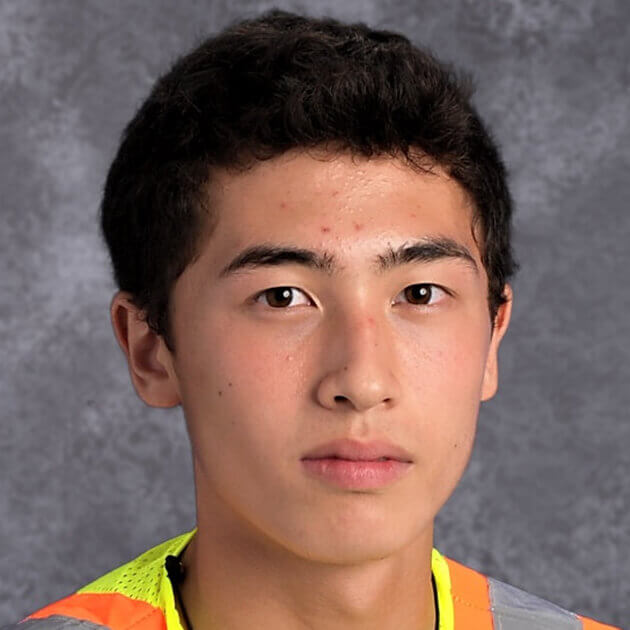
“We learned that seeds are always living,” said Zac Seto ’21, “waiting for the right soil and sun conditions to begin to grow. He added, “I enjoy being able to do hands-on activities, it helps me stay engaged and learn the material at a deeper level. Some of the challenges are fitting the lab in the greenhouse due to the social distancing limit—only a few students are allowed in the greenhouse at a time—and time constraints, as we usually are walking from the backfields and have to get to our next class.”
Makieda McKenzie ’21
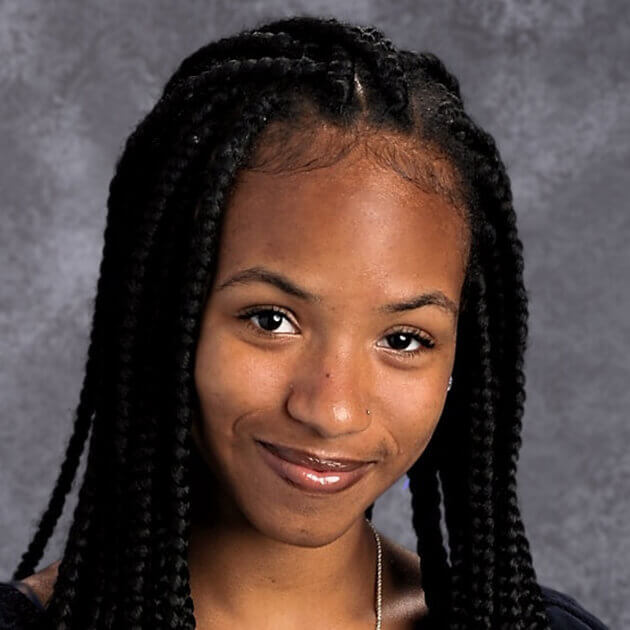
“I understand more about the composition of soil and the impact that it has on plant growth, said Makieda McKenzie ’21. “We varied soil makeups and then experimented with how our plants grew in it further clarifying the varying roles of sand, silt, and clay in plants.” She added, “For this class particularly, being outdoors has been a huge benefit. We mainly go to the greenhouse as much as possible, which is really helpful in understanding plant systems. However the impact of weather means that sometimes we set up a lab and are unable to truly see the results.”
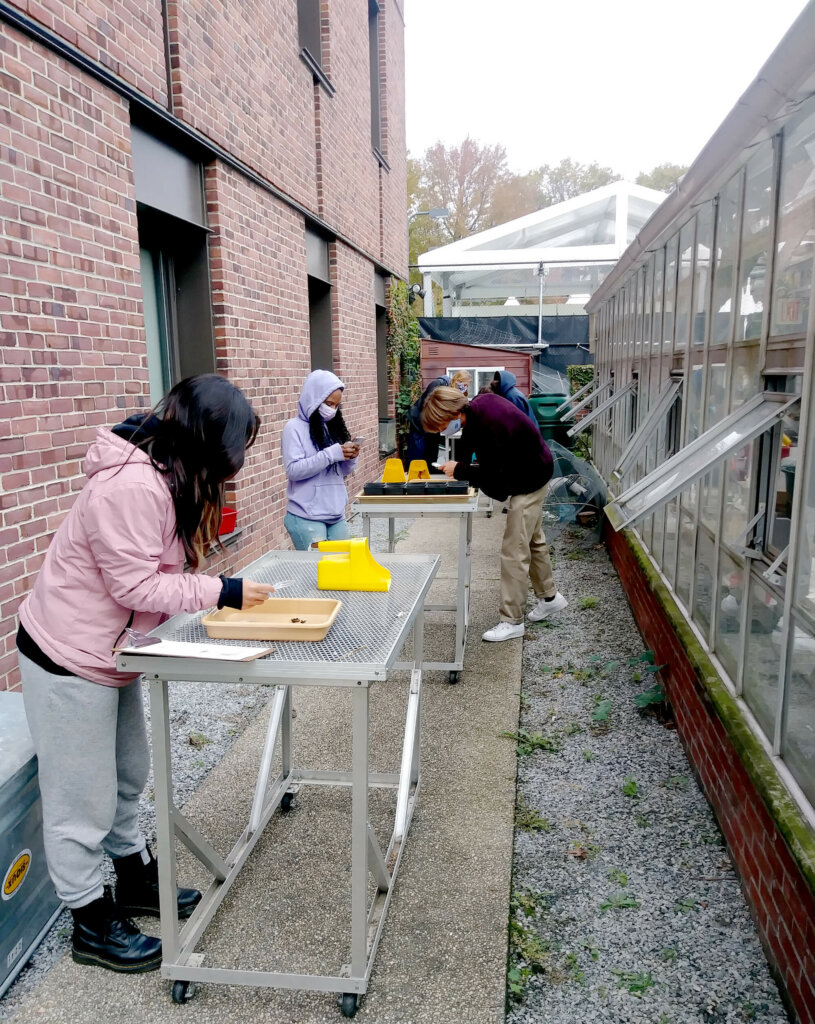
Tessa Marker ’21
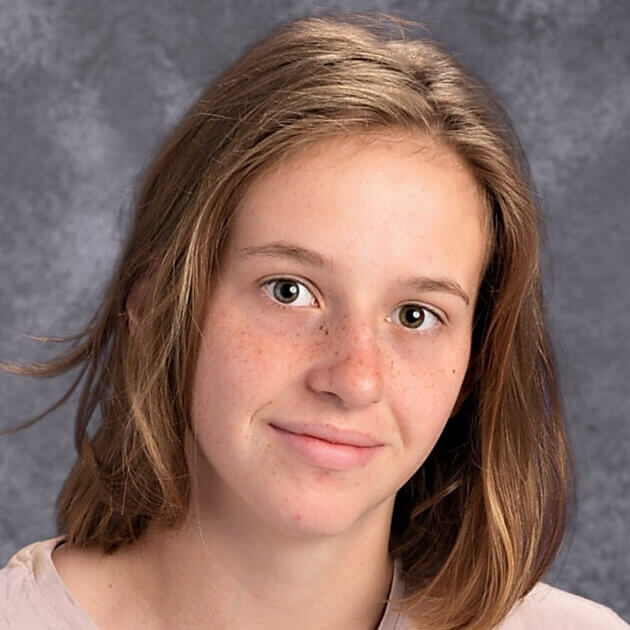
“It was interesting to learn that soil is a non renewable resource, said Tessa Marker ’21, “because we take it for granted so much and it’s crucial for our survival.” Marker added, “I really like working in the greenhouse outside. Being able to do some more hands-on learning is a really nice change of pace from sitting in my chair all day.”
Lola Stephens ’21
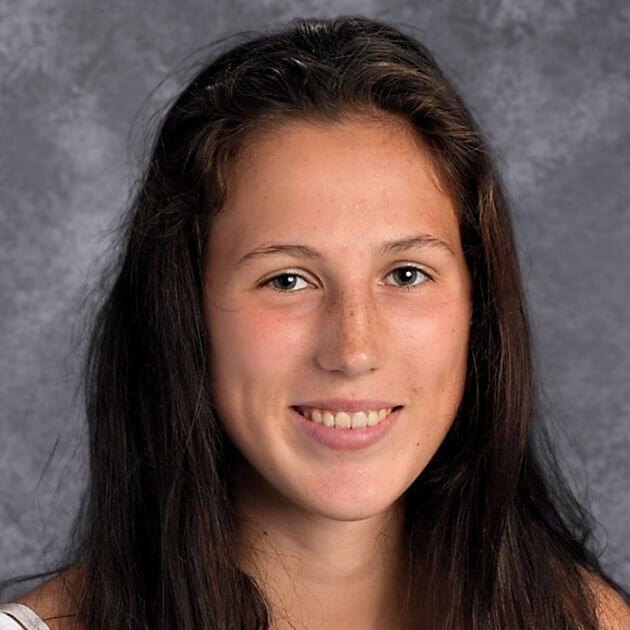
Lola Stephens ’21 said, “I thought it was very interesting to test our soil and see how present different micronutrients were. It definitely surprised me to see the level of nitrogen because I was expecting it to be a lot higher especially since so many plants have been left to go fallow in the raised beds and the topsoil is so frequently getting nitrogen rich additions from the environment, for example, dead leaves from the trees nearby.”
“I really enjoy having science labs outside,” Stephens added. “I really value being able to perform lab work myself and being able to see results in real time. I haven’t found it that challenging at all, actually, except for on the really cold or rainy days when it’s just generally unpleasant to be outside.”
